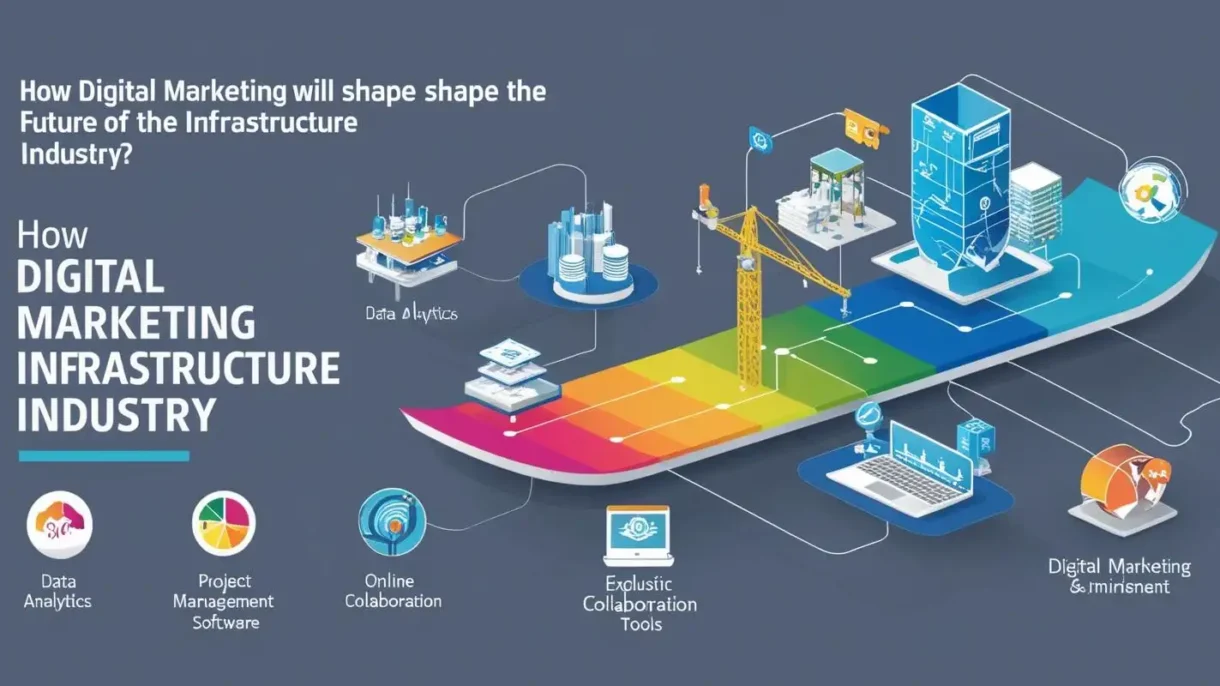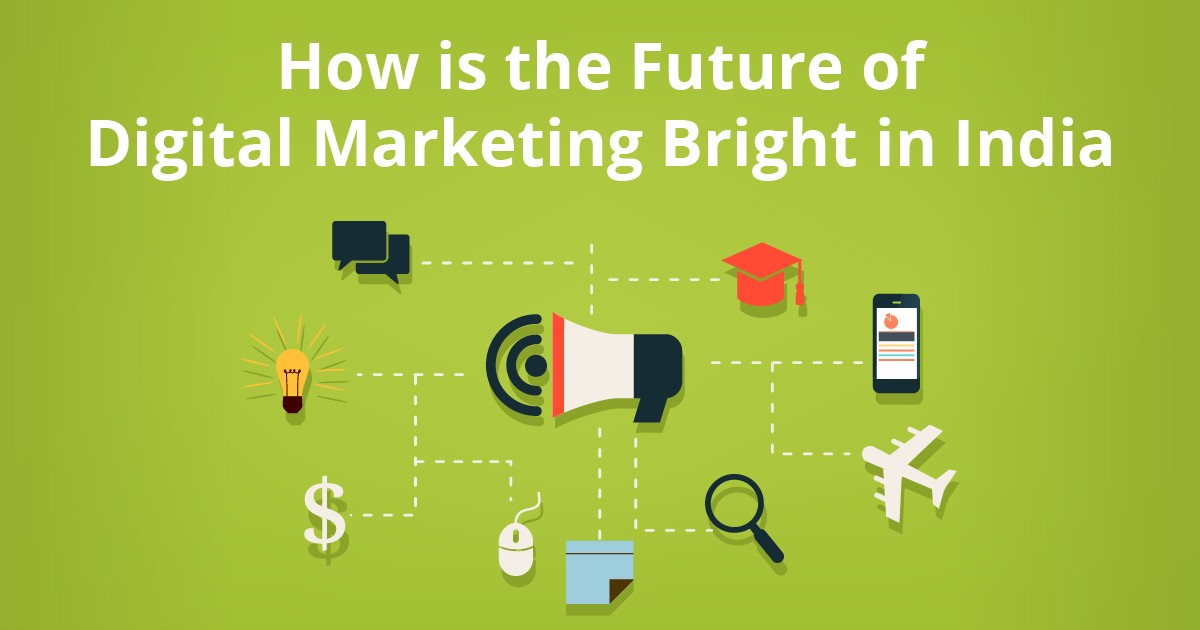
The infrastructure industry has long been synonymous with monumental achievements — bridges that span mighty rivers, highways that stitch cities together, and skyscrapers that define skylines. Yet, behind every blueprint and construction site lies an evolving challenge: how to remain visible, trusted, and relevant in a world that no longer waits for slow introductions.
In today’s digital-first landscape, traditional marketing methods alone no longer suffice. Stakeholders — from government agencies to private investors — expect more than a company brochure or a handshake at a convention. They seek instant access to project details, transparent communication, social proof, and a brand narrative that aligns with their vision of the future.
Digital marketing is no longer an add-on for infrastructure firms; it is rapidly becoming the foundation upon which reputation, growth, and industry leadership are built.
From SEO-driven visibility and targeted advertising to real-time project updates and employer branding, the infrastructure sector stands at the cusp of a digital revolution that will determine the builders of tomorrow.
This blog dives deep into how digital marketing will shape the future of the infrastructure industry — not just by changing how companies are perceived, but by fundamentally redefining how projects are conceived, funded, and celebrated in the public eye.
Table of Contents:
Sr. Headings
1. Introduction
2. Why Infrastructure Needs Digital Marketing
3. Key Ways Digital Marketing is Transforming Infrastructure
3.1 Enhanced Brand Visibility
3.2 Building Trust through Content
3.3 Targeted B2B Campaigns
3.4 Real-Time Project Updates and Transparency
3.5 Recruitment and Talent Acquisition
4. Emerging Trends in Infrastructure Digital Marketing
5. Challenges Ahead
6. Final Summary
7. FAQ’s
8. Conclusion

Introduction
In the grand narrative of human progress, infrastructure has always been the silent backbone — shaping civilizations, connecting continents, and empowering economies. Bridges are not just steel and stone; they are lifelines. Skyscrapers are not just concrete; they are aspirations reaching for the sky. Roads are not mere pathways; they are promises of tomorrow.
Yet, as the world transforms at the speed of thought, even the pillars of infrastructure must evolve beyond physical marvels into digital experiences.
We live in an age where perceptions are shaped in pixels before they are laid in concrete. An age where the first handshake happens through a search engine, the first negotiation through a LinkedIn message, and trust is earned not just by the strength of materials, but by the strength of a story told online.
In this changing reality, digital marketing is no longer an accessory for the infrastructure industry — it is the new blueprint.
It is the silent architect behind reputations, the invisible engineer behind stakeholder trust, and the unseen scaffolding that holds together opportunities in an increasingly competitive world.
The firms that understand this shift — those that craft compelling digital narratives, build bridges of engagement, and pave roads of online visibility — will not just survive the future.
They will build it.
In this exploration, we journey into how digital marketing is quietly, yet powerfully, reshaping the future of the infrastructure industry — one click, one story, one innovation at a time.
Why Infrastructure Needs Digital Marketing
Infrastructure has always been about vision — creating spaces, networks, and systems that outlive their creators and serve generations to come.
But vision alone is not enough in today’s world. Visibility, trust, and engagement have become equally critical. In an era where decision-makers research online before meeting face-to-face, and where billion-dollar projects can be influenced by public perception and digital narratives, infrastructure companies can no longer afford to stay silent on digital platforms.
The stakes are higher than ever.
Governments, investors, communities, and even future employees are evaluating companies based on what they find online.
They seek not only proof of technical expertise but also signs of reliability, innovation, transparency, and shared values. A well-crafted website, a thought leadership article, a project case study, or a simple update on LinkedIn can tip the scales between winning and losing a project.
Moreover, digital marketing enables infrastructure firms to:
Expand beyond geographical boundaries: Target international tenders, global investors, and diverse talent pools.
Build enduring trust: Through real-time project updates, client testimonials, and transparent communication.
Shorten sales cycles: By nurturing potential clients with informative, valuable content throughout their decision-making journey.
Humanize the brand: Showcasing the people behind the projects — the engineers, architects, project managers — fostering emotional connection.
Stay resilient during market shifts: Digital channels provide agility to respond to economic downturns, policy changes, and competition.
Simply put, digital marketing gives infrastructure companies a seat at the future’s table.
It is the bridge between what they build in the real world and what they represent in the minds of stakeholders. It transforms silent structures into living, breathing brands that speak to the needs, dreams, and ambitions of a digital society.
Key Ways Digital Marketing is Transforming Infrastructure
3.1 Enhanced Brand Visibility
Digital marketing allows infrastructure companies to extend their brand beyond geographical limitations. A strong website, SEO strategies, social media campaigns, and thought leadership content ensure that potential clients, government agencies, and investors can discover and engage with your brand globally.
3.2 Building Trust through Content
Thought leadership articles, whitepapers, case studies, and project walkthroughs help infrastructure firms establish authority and build credibility. In a high-investment sector, trust is critical — and educational content is key to building that trust.
3.3 Targeted B2B Campaigns
LinkedIn ads, Google Ads, and programmatic buying enable highly targeted B2B marketing. Infrastructure firms can now tailor campaigns based on specific industries, job roles (e.g., engineers, project managers, government officials), and geographic locations — dramatically improving lead quality and ROI.
3.4 Real-Time Project Updates and Transparency
Thanks to digital platforms, infrastructure firms can offer real-time project updates, drone footage, live streams, and interactive 3D models. This transparency not only reassures stakeholders but also enhances public trust in large-scale developments.
3.5 Recruitment and Talent Acquisition
The competition for skilled labor in the infrastructure sector is fierce. Digital marketing helps showcase company culture, highlight career opportunities, and attract top engineering, architecture, and management talent through social recruiting and employer branding strategies.
Emerging Trends in Infrastructure Digital Marketing
AI and Predictive Analytics: Helping companies predict project demand, optimize budgets, and personalize user experiences.
Augmented Reality (AR) and Virtual Reality (VR): Offering immersive project previews for stakeholders.
Sustainability Storytelling: Highlighting green initiatives through digital narratives to appeal to eco-conscious investors and communities.
Influencer Collaborations: Partnering with industry thought leaders to boost brand credibility and reach.
Challenges Ahead
While the potential is vast, the infrastructure sector faces challenges such as resistance to change, data security issues, and a shortage of digital marketing talent familiar with industry-specific needs. Companies must invest in training, partner with experts, and continuously adapt to stay competitive.
Final Summary
Digital marketing is revolutionizing the infrastructure industry by enhancing brand visibility, building trust through content, and enabling targeted B2B campaigns. With the rise of real-time updates, transparency, and a stronger digital presence, infrastructure companies can attract new projects and talent while staying ahead of the competition. As the industry embraces these digital tools, companies that adapt will shape the future of infrastructure, securing growth and innovation in a rapidly evolving landscape.



Digital marketing helps infrastructure companies increase visibility, build trust with stakeholders, attract investment, and differentiate themselves in a highly competitive market. It allows companies to communicate their expertise, showcase projects, and engage directly with decision-makers and the public.
Infrastructure firms can leverage digital marketing by building a strong website presence, optimizing for SEO, creating thought leadership content, running targeted LinkedIn and Google Ads campaigns, sharing real-time project updates, and using social media to highlight company culture and community impact.
A: No, most of these free tools are designed to be user-friendly, even f
The most effective strategies include:
Search Engine Optimization (SEO) for project discovery
Content marketing (blogs, case studies, whitepapers)
Video marketing (drone footage of projects, project walkthroughs)
LinkedIn B2B advertising
Email marketing for stakeholder updates
Virtual tours and 3D modeling for project previews
or those with limited technical skills. They often come with intuitive interfaces and helpful resources.
Yes. A strong digital presence can enhance credibility and trust, which are key factors when governments evaluate contractors. Well-documented case studies, certifications, transparent reporting, and professional branding online can significantly improve a company’s chances of winning public sector projects.
Social media helps infrastructure brands humanize their business, showcase project milestones, engage with local communities, build thought leadership, and attract future employees. Platforms like LinkedIn, Instagram, and even YouTube are valuable tools for telling a brand’s story visually and authentically.
Conclusion
The future of the infrastructure industry will be defined not just by the scale and innovation of physical projects but also by how companies position themselves digitally. Digital marketing is no longer optional — it’s essential. From enhancing brand visibility to driving real-time engagement, digital tools empower infrastructure firms to stay ahead in an increasingly connected and competitive world. Firms that embrace digital marketing today will not only secure more projects tomorrow but will also shape the skylines and communities of the future.
OCP Academy
(A Unit of OCP Foundation)
Learning Today, Leading Tomorrow

